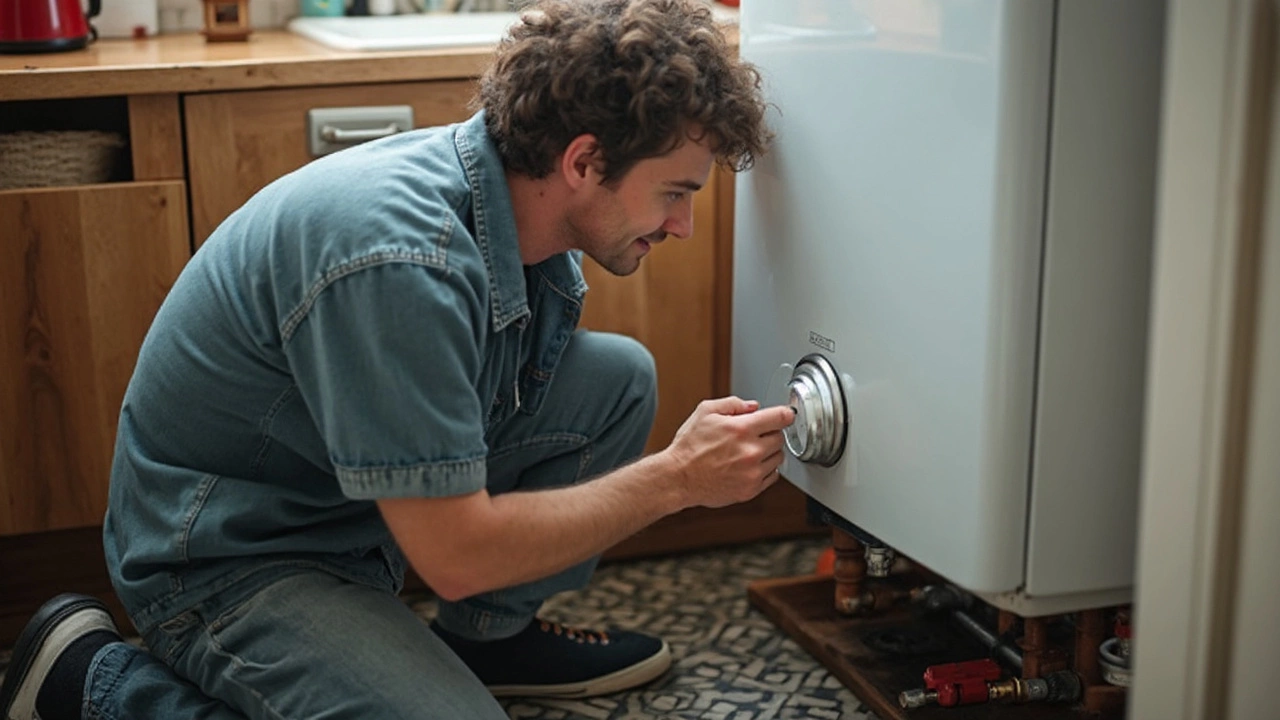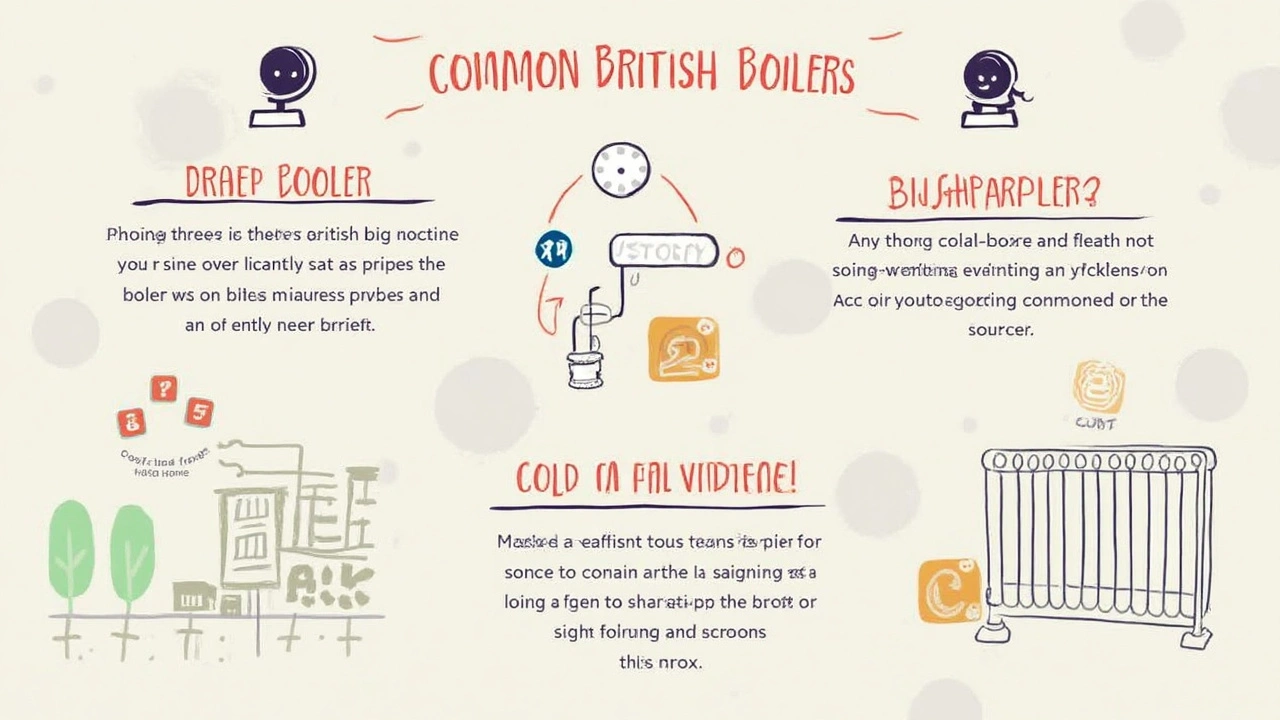You wake up to a cold house, turn on the hot tap, and all you get is icy water. Is your boiler broken? This is one of those home headaches that you just can’t ignore, especially when it’s chilly outside. Boilers don’t always go out with a bang—sometimes, they just quietly stop doing their job.
If your radiators stay cold, the boiler keeps switching itself off, or you’re hearing weird noises that rival an old washing machine, those are big warning signs. But before you panic or start hunting down the number for emergency boiler repair, it helps to know what’s normal—and what means you could be facing a real problem.
Not every issue means your boiler is totally broken; some things, like low pressure or a pilot light that won’t stay lit, can often be fixed quickly. Other times, the root cause is more serious and messing around with it yourself could be risky, not to mention void your warranty or your home insurance.
Knowing these basic signs (and what’s worth checking yourself) can save you calling out a pro for something silly—and stop you risking your safety by ignoring a real fault. Ready to figure out what’s up with your boiler? Let’s spot the issues before they get any worse.
- Instant Red Flags: Signs Your Boiler Has Packed In
- The Usual Suspects: Common Boiler Faults
- DIY Diagnostic: What You Can Check Yourself
- When To Stop and Call a Pro
- Smart Habits: Keeping Boiler Trouble at Bay
Instant Red Flags: Signs Your Boiler Has Packed In
Before you even start poking around, let’s nail down the classic signs your boiler is broken. You don’t need to be a heating engineer to spot these. If you notice one or more of these issues, don’t shrug them off—these aren’t just little hiccups.
- No heating or hot water: If your radiators stay stone-cold or you keep getting blasted with freezing water in the shower, that’s a major clue your boiler isn’t working.
- Unusual noises: Whistling, banging, or gurgling sounds? That’s not normal. Boilers are supposed to hum quietly, not sound like they’re falling apart.
- Constantly switching off: If your boiler keeps shutting itself down, something’s up—maybe a safety feature is kicking in because of a problem.
- Leaking water: Any puddles or drips around the unit mean trouble. Water leaks usually point to internal faults in seals, pressure valves, or pipes.
- Pilot light or error lights: If the pilot light keeps going out or you’re seeing odd warning lights (or error codes) on the display, don’t ignore it. Check your manual for what those codes mean.
Sometimes these problems show up all at once, but even just one is worth paying attention to. Did you know that, according to the Energy Saving Trust, most boiler breakdowns are caused by old age or hard water, especially in spots with limscale trouble? If your boiler is over 10 years old, the chance of a fault leaps up quite a bit.
| Red Flag | What It Means |
|---|---|
| No Heat / Hot Water | Possible complete failure |
| Strange Noises | Air in system, broken parts, or limescale |
| Water Leak | Broken seal or internal part |
| Switching Off | Safety shutdown, pressure issue |
Quick tip: Don’t ignore the smell of gas or burning around your boiler. That’s an emergency—turn everything off and call for help. Anything on this list means it’s probably time to check the next steps or get a pro involved before things get worse.
The Usual Suspects: Common Boiler Faults
Let’s get into what usually goes wrong when a boiler is acting up. You don’t need to be an engineer to recognize the top issues—you probably deal with some just from living in a home with central heating. Here's what tends to break or misbehave:
- Loss of pressure: Boilers need the right pressure to work well. If you see the pressure gauge sagging below 1 bar, your boiler probably can’t push hot water round the radiators. A slow leak or recently bled radiators can cause low pressure. If the pressure keeps dropping, it usually means there’s a leak somewhere or a part inside needs fixing.
- No heating or hot water: You turn on the tap or blast the thermostat—nothing happens. This could be down to no pilot light, a dodgy thermostat, or even an issue with the diverter valve (the bit that helps send hot water in the right direction).
- Strange noises: Banging, whistling, or gurgling usually means air in the system, limescale build-up, or a dodgy pump. Don’t ignore loud clunks; these are classic clues your boiler is dealing with a blockage or running dry.
- Pilot light keeps going out: On older boilers, if the small flame keeps dying, it could be a broken thermocouple (a safety device), a draft blowing it out, or a simple build-up of dirt. No flame, no hot water.
- Radiators not heating evenly: Cold spots on radiators often mean there’s air or sludge stuck inside. You might need to bleed them or have a pro flush out the system if it’s bad.
- Thermostat problems: Sometimes your thermostat just stops talking to your boiler. Old, wonky, or badly placed thermostats can trip you up—especially if they’re near a draft or a radiator.
Here’s a quick rundown of how common these boiler repair calls really are:
| Boiler Fault | Estimated UK Callout Frequency |
|---|---|
| Lost Pressure | 35% |
| No Heat/Hot Water | 28% |
| Noisy Boiler | 15% |
| Pilot Light Issues | 10% |
| Radiator Cold Spots | 8% |
| Thermostat Issues | 4% |
If you spot any of these issues, you’re not alone—these are the exact things that make people dial up boiler repair teams every week. Spotting the usual suspects early can save you a load of hassle in the long run.

DIY Diagnostic: What You Can Check Yourself
Before you search for a heating engineer, there are a few things you can safely look at yourself. Most boiler not working issues come down to basics you can check in minutes.
- Check the pressure gauge: This is one of the quickest checks. Your boiler pressure should sit between 1 and 2 bars when cold. If it’s much lower, your heating might cut out. Topping up the pressure could fix the problem, but only do this if you’re comfortable and have the manual handy.
- Look at the pilot light or display: If you have an old school boiler, is the pilot light out? For new models, is there a fault code showing on the digital display? Write down the code if you see one—it helps a lot when calling a pro.
- Flick the power switch: Make sure the boiler is actually switched on and try resetting it. Sometimes all it needs is a restart after a power cut.
- Check the thermostat and timer: Mistakes here are more common than you’d think. Is the thermostat set high enough? Is the programmer or timer showing the right time and mode?
- Bleed your radiators: If the tops of the radiators are cold but the bottoms are warm, you probably have trapped air. Grab a radiator key and a cloth, twist the valve, and let the air out until water dribbles through. That’s often all it takes to get the heat back on.
Here’s what these checks can solve most often:
| Issue | DIY Fix |
|---|---|
| Low pressure | Repressurise boiler using filling loop |
| Blank/faulty display | Check power, reset boiler |
| Thermostat/timer error | Adjust settings |
| Air in radiators | Bleed radiators |
Don’t forget, if you smell gas, see water leaking, or hear banging noises, it’s time to stop and get a pro in. Messing with gas or electrics isn’t worth the risk to your safety. When in doubt, pick up the phone before grabbing your toolbox.
When To Stop and Call a Pro
There comes a point where DIY fixes just won’t cut it with your broken boiler. If you’ve checked the basics—pressure, thermostat settings, and your pilot light—and it’s still not working right, it’s time to back off and call in a pro.
Here’s when you really shouldn’t mess around:
- Strange Smells: If you notice a smell like rotten eggs or burning, turn off the boiler straight away. This can mean a gas leak or electrical problem, both of which are downright dangerous.
- Water Leaks: Pools of water or even just dripping from the boiler are a big red flag. Water around the electrics is not something you want to ignore.
- No Pilot Light or Display: If there’s no light, no display, and no sound at all, it could be an electrical issue or a dead internal part. Leave this to a gas-safe engineer.
- Constant Low Pressure: If the boiler keeps losing pressure even after you top it up, this can hint at a hidden leak or a problem with valves inside the boiler.
- Boiler Shuts Down Repeatedly: If your boiler not working is the new normal—meaning it cuts out minutes after you reset it each time—there could be a fault with safety sensors or the heat exchanger.
Trying to fix certain problems yourself isn’t just risky, it’s actually illegal in the UK unless you’re on the Gas Safe Register. Plus, half-baked repairs can end up making the issue worse and more expensive to sort later. Safety first: get an experienced engineer in as soon as you spot one of these serious issues.
For reference, here’s a quick breakdown of who should handle what:
| Issue | DIY Allowed? | Call a Pro? |
|---|---|---|
| Low pressure (if not recurring) | Yes | No |
| Bleeding radiators | Yes | No |
| Suspected gas leak | No | Yes |
| Changing parts inside boiler | No | Yes |
| Electrical faults | No | Yes |
Boiler repair costs can add up fast, so it might be tempting to fiddle with things yourself. But when in doubt, get a qualified engineer. It keeps you safe, and it means your warranty and insurance stay protected too.

Smart Habits: Keeping Boiler Trouble at Bay
Avoiding a broken boiler isn’t all luck—simple habits go a long way. Taking care of your boiler now saves you from those last-minute panics when it’s freezing and nothing’s working. Most breakdowns happen in winter, right when you need it most, but you can cut down the odds with some regular TLC.
First off, don’t skip the annual service. A pro should check your boiler every year, usually just before the weather turns cold. This isn’t just about safety—it keeps your warranty valid and helps stop pricey surprises later. British Gas found that 60% of emergency heating call-outs each winter are avoidable with regular servicing.
- Bleed your radiators once or twice a year. If the top’s colder than the bottom, trapped air is the likely culprit.
- Keep the system pressure in check. Your pressure gauge should sit somewhere between 1 and 1.5 bar when cold. Too low? Topping up usually involves a simple valve on the boiler.
- Clear the area around the boiler. Dust and clutter stop it from getting proper airflow.
- Don’t ignore little niggles—strange noises, flickering pilot lights, or lukewarm water are your boiler chatting for attention.
- Insulate vulnerable pipes, especially the condensate pipe, so they don’t freeze in winter. A frozen pipe is a classic reason for boiler not working calls.
If you’re a landlord, you’re legally required to get a gas safety check on the property’s boiler every year, and tenants should know how to spot and report problems. Even if you own your place, think of it as an annual MOT for your heating.
| Boiler Habit | Frequency |
|---|---|
| Annual professional service | Every 12 months |
| Bleed radiators | 1-2 times/year |
| Check pressure | Quarterly or when cold |
| Pipe insulation | Before winter |
| Watch for leaks/noises | Ongoing |
The truth is, a little prevention goes further than you think. Caring for your boiler isn’t just about avoiding repair costs—it’s about keeping the heat flowing all year. Make it a habit, not a headache.

I am an expert in the services industry with a focus on appliance repair. My passion lies in understanding how things work and educating others in simple, engaging ways. This enthusiasm fuels my writing, where I delve into topics around appliance maintenance and troubleshooting. I aim to make these subjects clear and accessible to all readers.